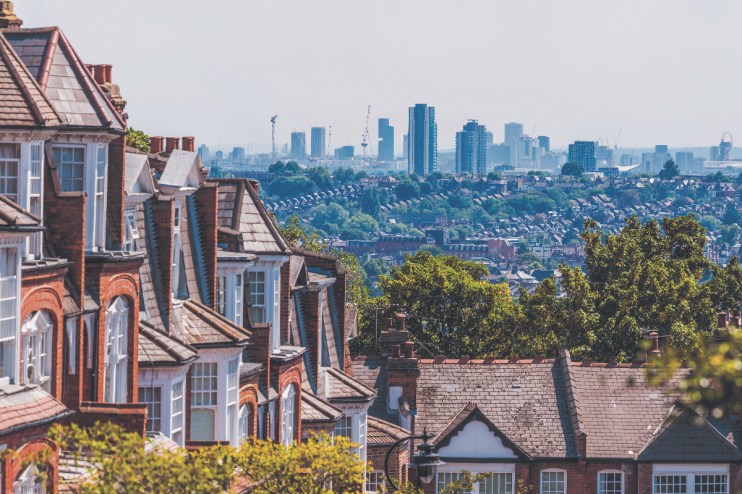House prices rise for first time since last June but sticky rents likely to remain challenge for tenants

New government data has shown house prices grew for the first time since last summer in March, while private rents cooled from the record highs recorded at the start of the year.
According to the latest house price index from HMRC Land Registry, house prices have risen 1.8 per cent over the past year, taking the average UK house price to £283k – the first annual increase in prices since the year to last June.
The HMRC Land Registry house price index is based on completed sales rather than advertised or approved prices, which makes it a more accurate reading of market sentiment.
However, the figure falls in line with other reports, such as Rightmove’s, which said house prices are slowly creeping up.
Sentiment in the housing market has shown signs of improvement this year despite mortgage rates increasing and the Bank of England continuing to hold interest rates at 5.25 per cent.
On Wednesday, it was also reported that inflation has dropped to the lowest rate since September 2021 at 2.3 per cent which will also improve buyer confidence in the housing market.
Josh Skelding, commercial director at Fignum, said: “It’s certainly a positive sign that average asking prices are continuing to rise, with today’s data suggesting that the market is reaching a stable equilibrium.
“Demand has continued to heat up with the backlog of movers put off by last year’s volatile mortgage rates fuelling mortgage activity and putting upwards pressure on house prices. As we head into the spring and summer months, typically characterised by increased home listings compared to other seasons, the market looks set to remain buoyant.”
He added: “In addition, lenders are responding to optimism in the markets and the decline in swap rates has recently prompted three major lenders to cut rates to fixed rate products, providing another much-needed boost for borrowers.”
‘Particularly challenging’ renting environment
Meanwhile, private rents also cooled slightly from the record highs recorded in March.
The amount tenants pay grew by 8.9 per cent in the year to April against a 9.2 per cent rise in the prior month.
In London, rent inflation remained the highest, swelling to 10.8 per cent.
However, Rebecca Florisson, principal analyst, the Work Foundation at Lancaster University, said it is likely renters will still struggle with affordability.
She said: “On average, renters in Britain are having to find £103 more a month than they were last year. This is most acute for workers in London where rents are now 10.8 per cent higher than in 2023, and will hit insecure workers hardest as they earn on average £3,276 less than those in secure jobs.
“With only 30 per cent of employers preparing to give above inflation pay rises in 2024, many private renters will have little breathing room to pay their increased rental costs which are already outpacing wage increases.
She added: “This will be particularly challenging for the 1.4 million private renters in severely insecure work, who are most vulnerable to rent hikes while managing irregular hours and variable pay checks.”
“There is more bad news for renters as UK house prices have risen by 1.8 per cent on the year, putting the opportunity of buying a house further out of reach for many cash-strapped private renters.